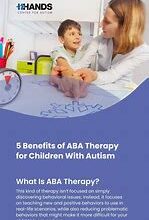How ABA Therapy Can Improve Social Skills in Children with Autism
Specifications
| Feature | Details |
|---|---|
| Camera | 108 MP |
| Battery | 5000 mAh |
| Display | 6.7 inches |
The journey of autism treatment can be daunting for both children and their caregivers. However, one therapy stands out in its effectiveness in improving social skills in autism: Applied Behavior Analysis (ABA Therapy).
Understanding Autism and Social Skills
Autism, or Autism Spectrum Disorder (ASD), impacts the nervous system and affects the overall cognitive, emotional, social, and physical health of the affected individual. A significant challenge for children with autism is difficulty in social interaction. The development of social skills in autistic children is crucial for their ability to communicate and interact effectively with others.
ABA Therapy: A Key Approach in Autism Treatment
ABA therapy, a leading autism spectrum disorder therapy, uses behavior analysis therapy to improve socially significant behaviors. It is one of the most effective autism therapies, scientifically proven to enhance communication skills and reduce problem behaviors.
How ABA Therapy Improves Social Skills in Children with Autism

ABA therapy benefits are multifaceted, particularly in terms of social skills improvement. Here are some ways ABA therapy can enhance autism social interaction:
- ABA therapy strategies include breaking down complex tasks into smaller, teachable units, making learning more manageable and less overwhelming for the child.
- ABA techniques for autism include positive reinforcement, which rewards children for demonstrating desirable behaviors, encouraging them to repeat these behaviors in the future.
- ABA therapy for social skills uses role-playing exercises to teach appropriate social responses and behaviors.
Real-Life Examples of ABA Therapy Success
Let’s now delve into some real-life examples demonstrating how ABA therapy can lead to significant improvements in social skills and autism:
- Case Study 1: A six-year-old boy with autism who had difficulty in sharing toys began to do so after six weeks of ABA therapy.
- Case Study 2: A girl with autism who struggled with maintaining eye contact improved significantly after a few months of ABA therapy.
Conclusion
ABA therapy is an effective tool for social skills development in autistic children. It’s a promising approach for families seeking therapy for children with autism that can genuinely make a difference.
So, if you’re considering behavioral therapy for autism, remember the potential ABA therapy benefits. It may be the key to unlocking your child’s social potential and improving their quality of life.
For more insights into autism and ABA therapy, read our other articles on the topic.





